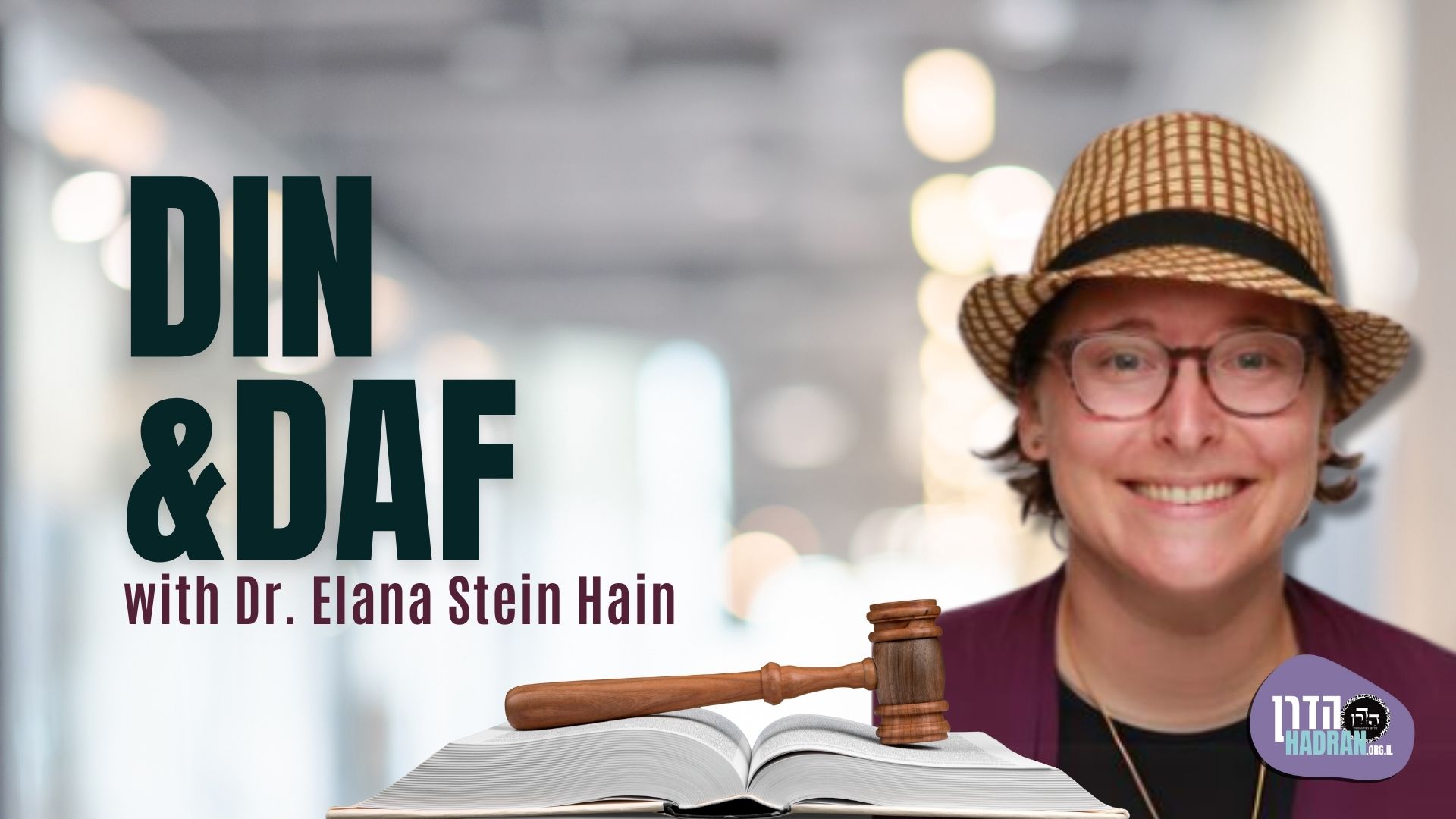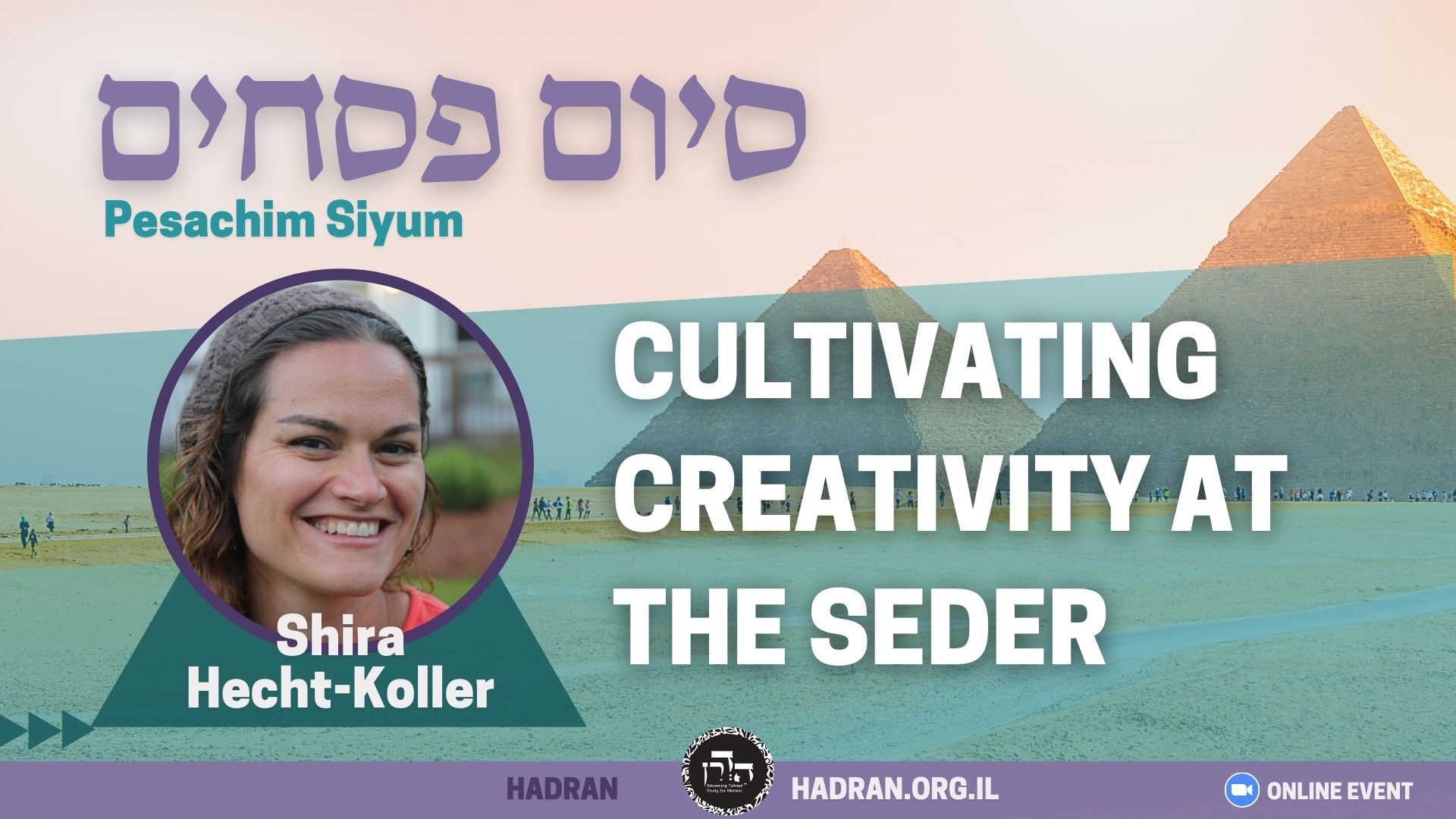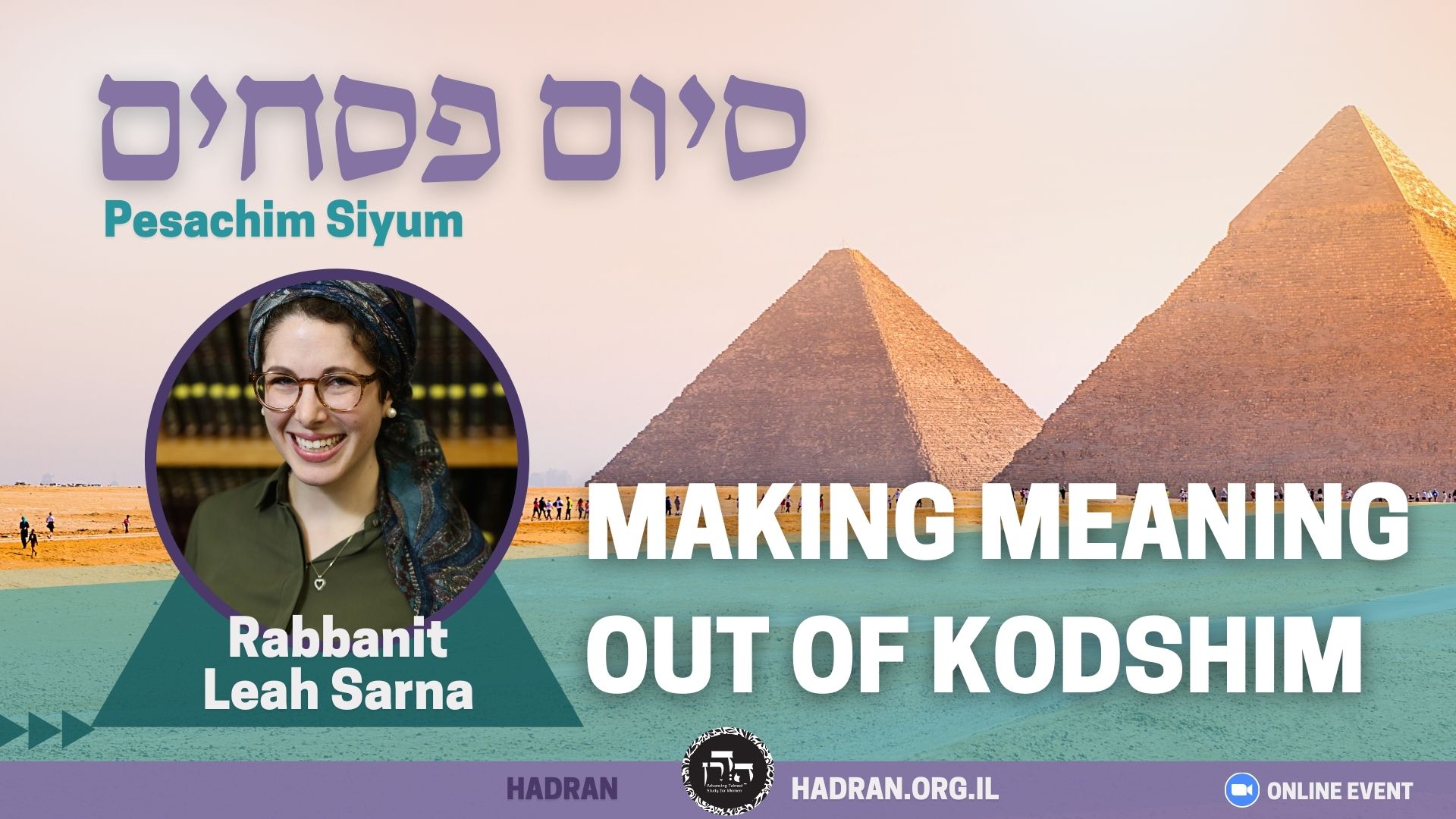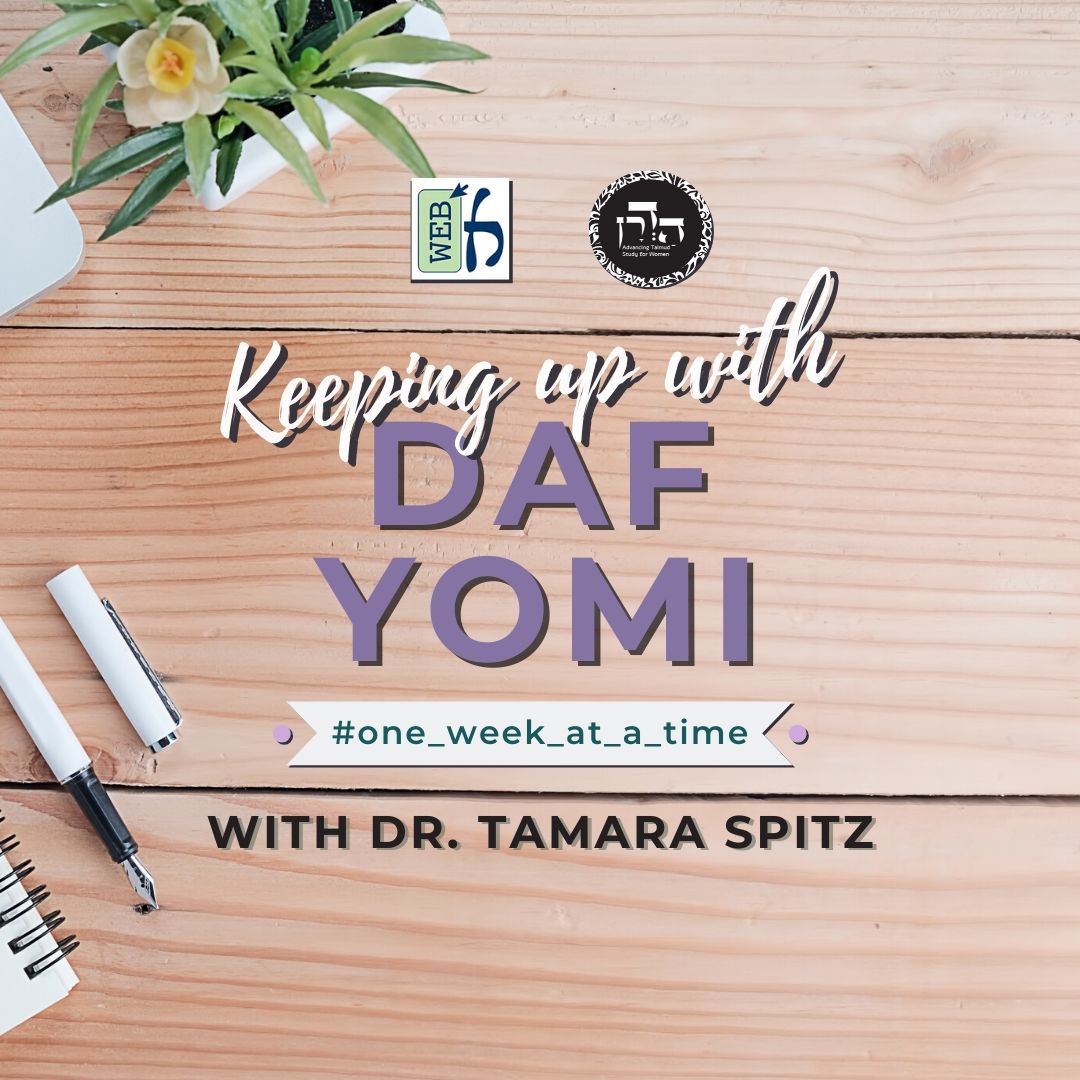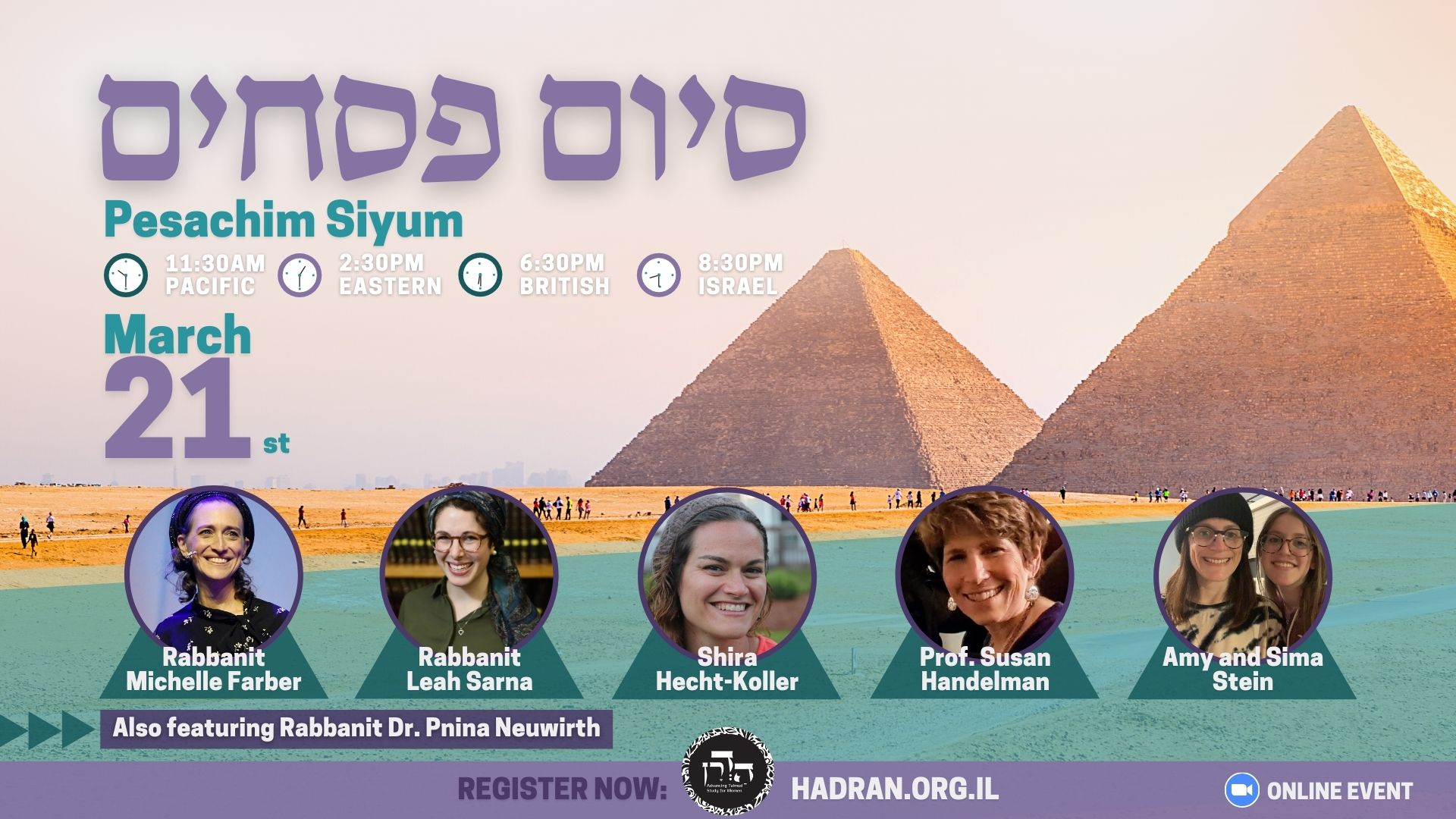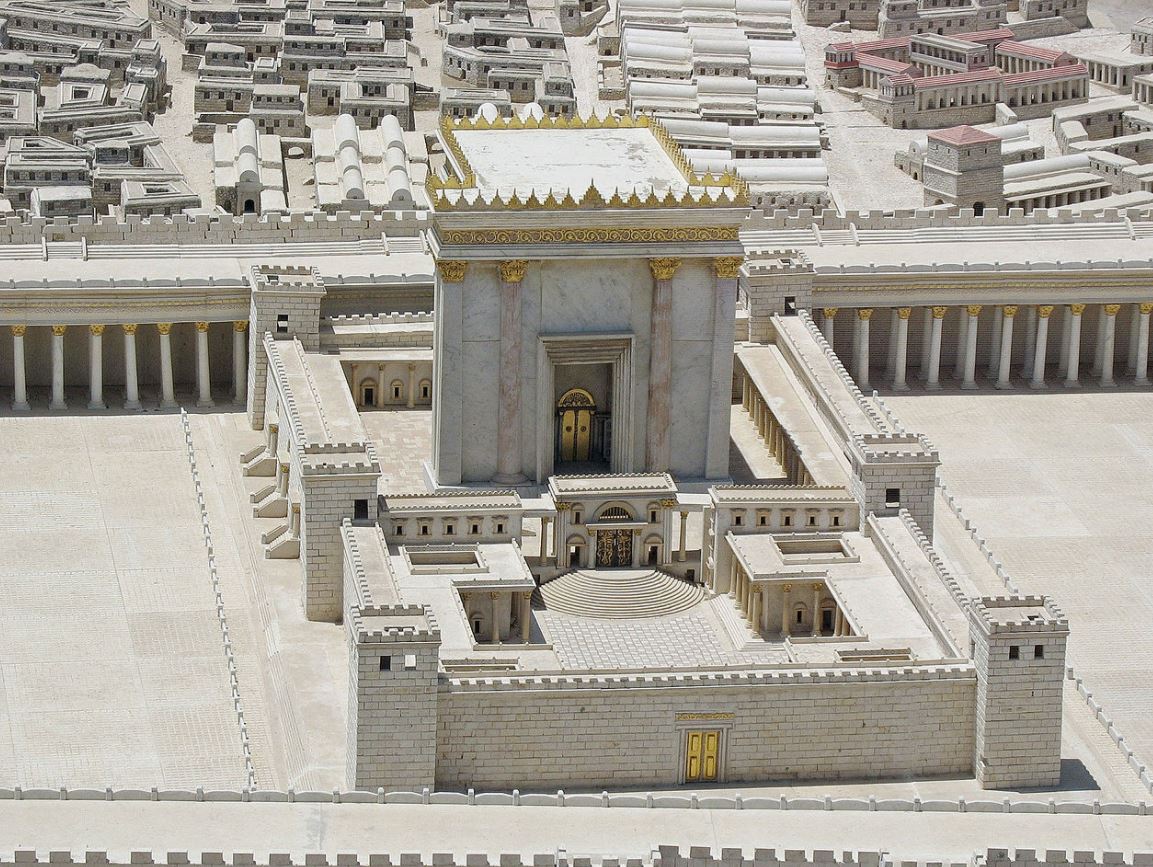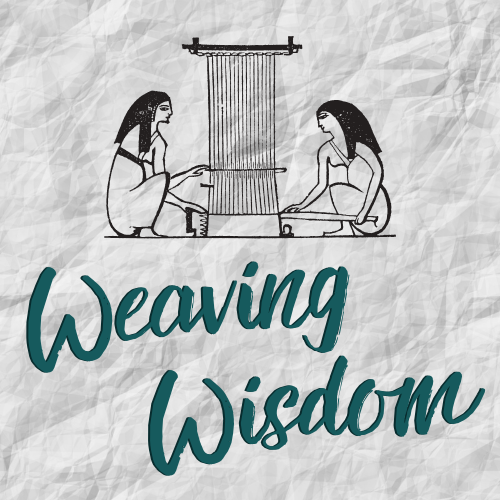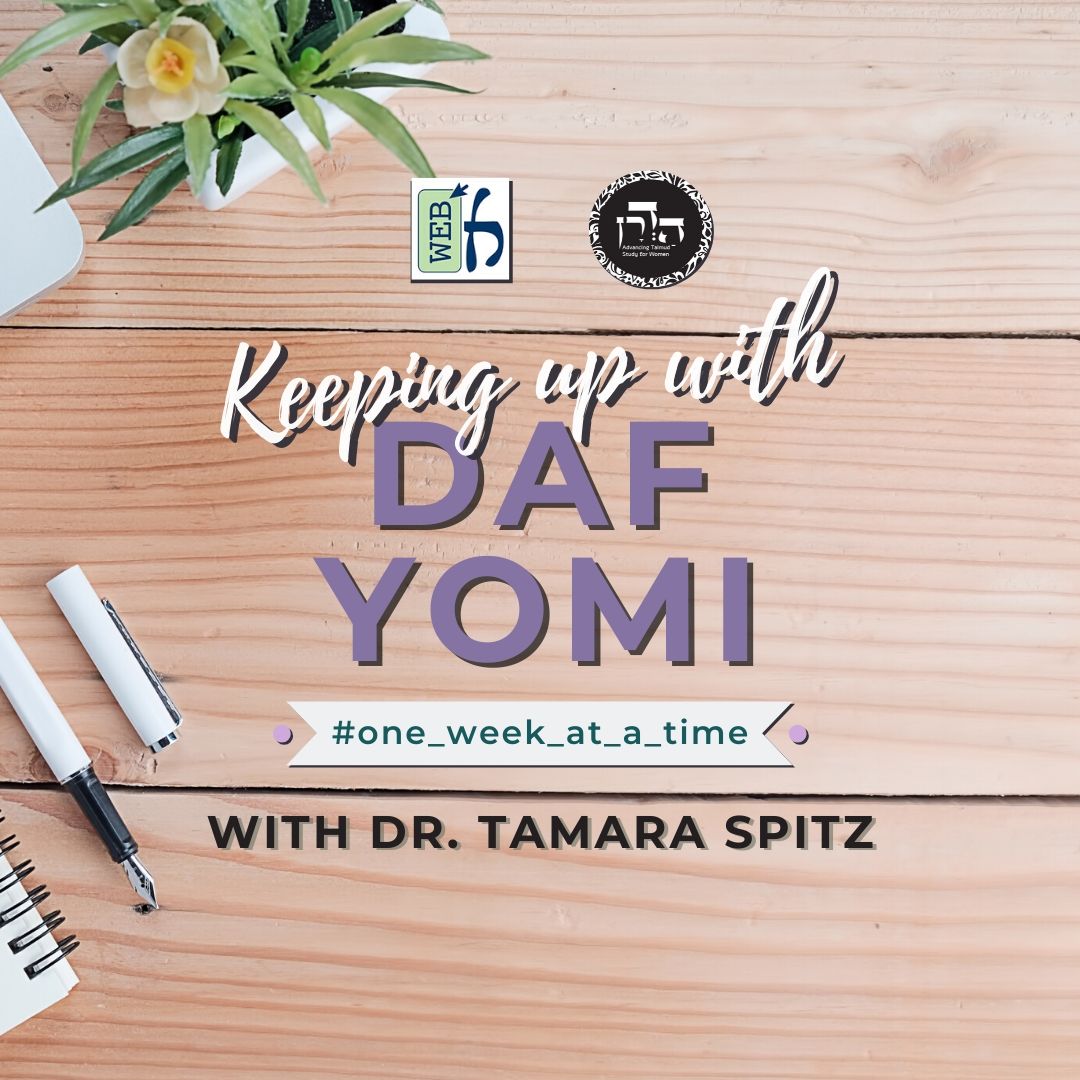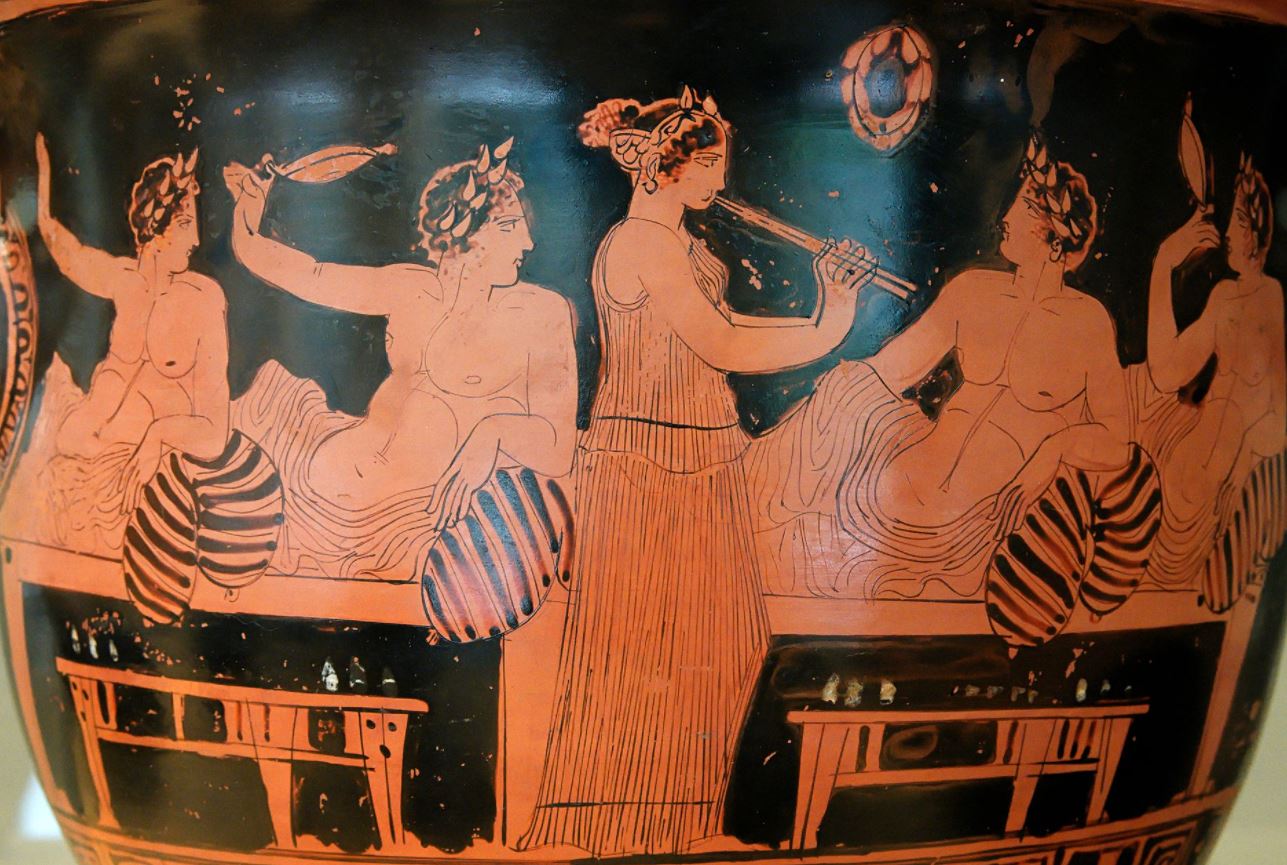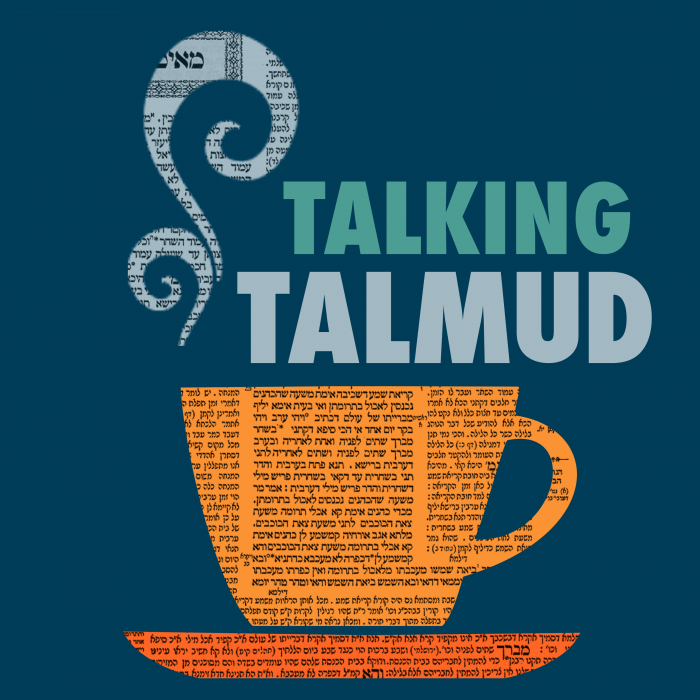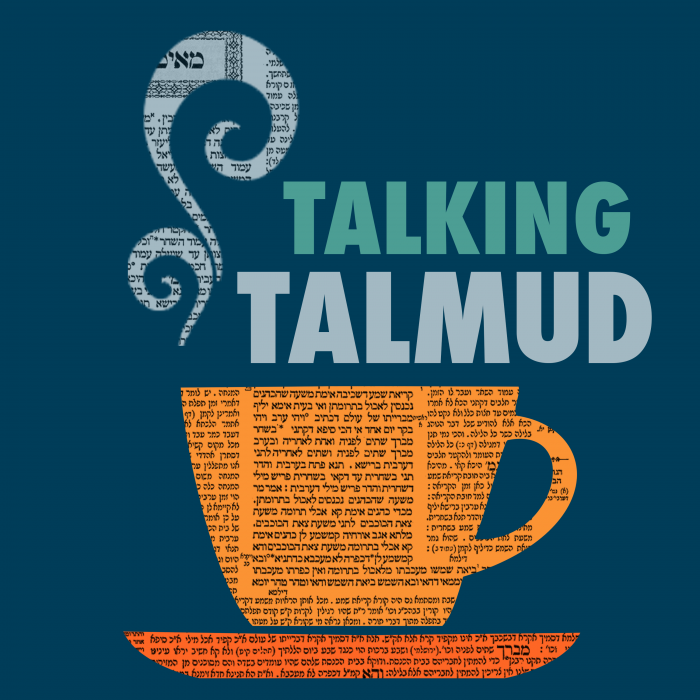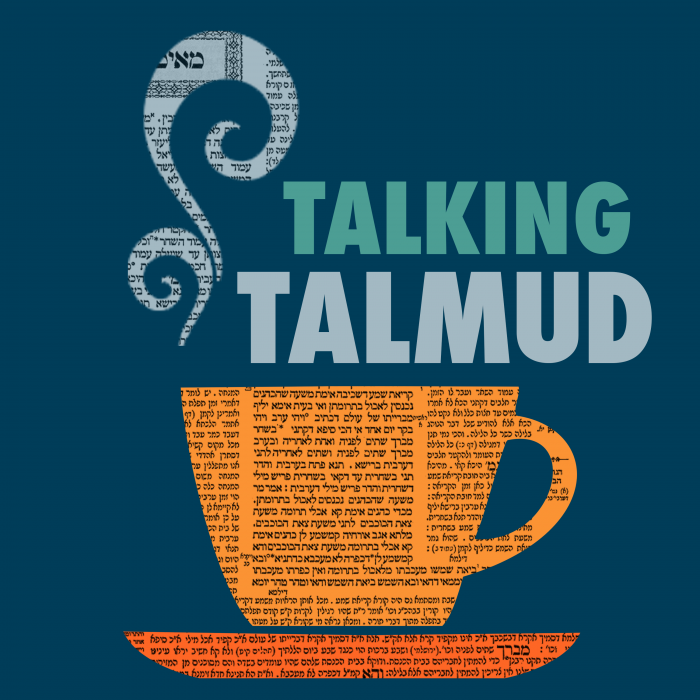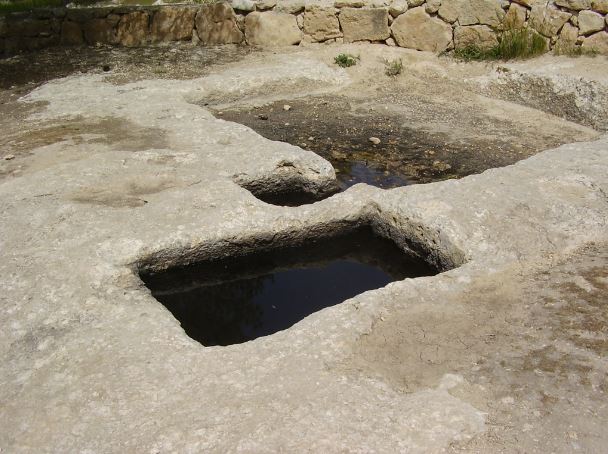Pesachim 113
גָּזְיָיתָא נִינְהוּ, דְּשָׁמְטִי סוּסַיָּא וְאָתוּ דָּבְרִי לְהוּ.
are found on the paths [gazyata] near the city, as horses belonging to the demons flee along those paths, and the demons come to lead them away. Generally, however, demons do not enter inhabited places.
(וַאֲמַר לֵיהּ) רַב לְרַב אַסִּי: לָא תְּדוּר בְּמָתָא דְּלָא צָנֵיף בַּהּ סוּסְיָא וְלָא נָבַח בַּהּ כַּלְבָּא. וְאַל תָּדוּר בְּעִיר דְּרֵישׁ מָתָא אָסְיָא, וְלָא תִּנְסֵיב תַּרְתֵּי. אִי נָסְבַתְּ תַּרְתֵּי — נְסֵיב תְּלָת.
And Rav said to Rav Asi: Do not live in a city where horses do not neigh and where dogs do not bark, as these animals provide security and protection. And do not live in a city where the mayor is a doctor, as he will be too busy working to govern properly. And do not marry two women, as they will likely join forces against you. And if you do marry two, marry a third as well. If two of your wives plot against you, the third will inform you of their plans.
אֲמַר לֵיהּ רַב לְרַב כָּהֲנָא: הֲפוֹךְ בִּנְבֵילְתָּא וְלָא תֵּיפוֹךְ בְּמִילֵּי. פְּשׁוֹט נְבֵילְתָּא בְּשׁוּקָא וּשְׁקֵיל אַגְרָא, וְלָא תֵּימָא ״כָּהֲנָא אֲנָא, וְגַבְרָא רַבָּא אֲנָא, וְסַנְיָא בִּי מִלְּתָא״. סָלְקַתְּ לְאִיגָּרָא — שֵׁירוּתָךְ בַּהֲדָךְ. מְאָה קָרֵי בְּמָתָא בְּזוּזָא — תּוּתֵי כַּנְפָיךְ נִיהְווֹ.
Rav said to Rav Kahana: It is better for one to turn over a carcass than to turn over his word, i.e., to break his promise. Rav further said: Skin a carcass in the market and take payment, but do not say: I am a priest, or: I am a great man, and this matter disgusts me. It is preferable for one to work, even in menial labor, than to be dependent on others. Rav also advised Rav Kahana: If you ascend to the roof, carry your food with you. One should always carry his sustenance with him, even if he goes only on a short trip. If one hundred pumpkins in the city cost a zuz, place them carefully under the corners of your clothes. Treat food respectfully even if it is inexpensive.
אֲמַר לֵיהּ רַב לְחִיָּיא בְּרֵיהּ: לָא תִּשְׁתֵּי סַמָּא, וְלָא תְּשַׁוַּור נִיגְרָא, וְלָא תִּעְקַר כַּכָּא, וְלָא תְּקַנֵּא בְּחִיוְיָא, וְלָא תְּקַנֵּא בְּאַרְמָאָה.
Rav said to Ḥiyya, his son: Do not get into the habit of drinking medications, lest you develop an addiction. And do not leap over a ditch, as you might hurt yourself in the process. And do not pull out a tooth, but try to heal it if possible. And do not provoke a snake in your house to try to kill it or chase it away. And do not provoke a gentile, as this too is dangerous.
תָּנוּ רַבָּנַן: שְׁלֹשָׁה אֵין מִתְקַנְּאִין בָּהֶן, וְאֵלּוּ הֵן: גּוֹי קָטָן, וְנָחָשׁ קָטָן, וְתַלְמִיד קָטָן. מַאי טַעְמָא — דְּמַלְכוּתַיְיהוּ אֲחוֹרֵי אוּדְנַיְיהוּ קָאֵי.
Similarly, the Sages taught: There are three beings one should not provoke: A small gentile, and a small snake, and a small Torah scholar. What is the reason? Because their authority stands behind their ears. They will eventually grow up, assume power, each in his own way, and avenge those who have harassed them.
אֲמַר לֵיהּ רַב לְאַיְבוּ בְּרֵיהּ: טְרַחִי בָּךְ בִּשְׁמַעְתָּא וְלָא מִסְתַּיַּיע מִילְּתָא. תָּא אַגְמְרָךְ מִילֵּי דְעָלְמָא. אַדְּחָלָא אַכַּרְעָיךָ — זְבִינָךְ זַבֵּין. כֹּל מִילֵּי זַבֵּין וְתִחָרַט — בַּר מֵחַמְרָא, דְּזַבֵּין וְלָא תִּחָרַט.
Rav said to Ayvu, his son: I struggled to teach you halakha but my efforts did not succeed, as you did not become a great scholar. Come and I will teach you about mundane matters: Sell your merchandise while the dust from the road is still on your feet. As soon you return from your travels, sell your wares, lest the prices fall in the meantime. Furthermore, it is possible that anything you sell might later cause you to regret the sale, except for wine, which you can sell without regret. Since wine might go bad and be entirely lost, its sale is always advisable.
שְׁרֵי כִּיסָיךְ, פְּתַח שַׂקָּיךָ. קַבָּא מֵאַרְעָא, וְלָא כּוֹרָא מֵאִיגָּרָא.
Rav further advised his son: Open your purse to accept payment, and only then open your sack to deliver the goods, to ensure you will receive payment for your merchandise. It is better to earn a kav from the ground than a kor from the roof. A kor is one hundred and eighty times larger than a kav. This proverb means that it is preferable to earn a small amount from a local, safe transaction than to attempt to earn more through a distant, risky venture.
תַּמְרֵי בַּחֲלוּזָךְ — לְבֵית סוּדָנָא רְהוֹט. וְעַד כַּמָּה? אָמַר רָבָא: עַד תְּלָת סְאָה. אָמַר רַב פָּפָּא: אִי לָא דִּרְמַאי שִׁכְרָא לָא אִיעַתַּרִי. אִיכָּא דְּאָמְרִי, אָמַר רַב חִסְדָּא: אִי לָא דִּרְמַאי שִׁכְרָא לָא אִיעַתַּרִי: מַאי ״סוּדָנָא״? אָמַר רַב חִסְדָּא: סוֹד נָאֶה, וּגְמִילוּת חֲסָדִים.
Rav continued: If there are dates in your storeroom, run to the brewery to sell them. If you wait, there is a good chance the dates will go bad. The Gemara asks: And how many dates should one keep for himself? Rava said: Up to three se’a. Rav Pappa said: If I were not a beer manufacturer I would not have become wealthy. Some say that it was Rav Ḥisda who said: If I were not a beer manufacturer I would not have become wealthy. The Gemara asks: What is the meaning of the word sudana, the Aramaic term for a brewer? Rav Ḥisda said: A pleasant secret [sod na’e] and acts of loving kindness, as brewing is a good way to make money and also enables one to perform good deeds.
אָמַר רַב פָּפָּא: כׇּל אַגַּב — גְּבִיָּא בָּעֵי. כֹּל אַשְׁרַאי — סָפֵק אָתֵי סָפֵק לָא אָתֵי. וּדְאָתֵי — מָעוֹת רָעוֹת נִינְהוּ.
The Gemara continues to offer advice about mundane matters. Rav Pappa said: Anything you acquire with a document by means of which ownership is transferred, i.e., a bill of acquisition or obligation, requires collection, despite the fact that you are the legal owner. Any sale on credit is uncertain whether or not it will come to fruition. And even if it does come to fruition, the money is bad. These funds are difficult to collect, and they are generally not paid on time.
שְׁלֹשָׁה דְּבָרִים אָמַר רַבִּי יוֹחָנָן מִשּׁוּם אַנְשֵׁי יְרוּשָׁלַיִם: כְּשֶׁאַתָּה יוֹצֵא לַמִּלְחָמָה — אַל תֵּצֵא בָּרִאשׁוֹנָה, אֶלָּא תֵּצֵא בָּאַחֲרוֹנָה, כְּדֵי שֶׁתִּכָּנֵס בָּרִאשׁוֹנָה. וַעֲשֵׂה שַׁבַּתְּךָ חוֹל, וְאַל תִּצְטָרֵךְ לַבְּרִיּוֹת. וֶהֱוֵי מִשְׁתַּדֵּל עִם מִי שֶׁהַשָּׁעָה מְשַׂחֶקֶת לוֹ.
Rabbi Yoḥanan said three matters, citing the people of Jerusalem: When you go to war do not go out first, but go out last. The reason is so that if your side is defeated and you need to flee for your life, you will enter the refuge of the city first. And it is better to make your Shabbat like an ordinary weekday and do not be beholden to other beings. And exert yourself to join together with one upon whom the hour smiles.
שְׁלֹשָׁה דְּבָרִים אָמַר רַבִּי יְהוֹשֻׁעַ בֶּן לֵוִי מִשּׁוּם אַנְשֵׁי יְרוּשָׁלַיִם: אַל תַּרְבֶּה בִּגְנוּת, מִשּׁוּם מַעֲשֶׂה שֶׁהָיָה. בִּתְּךָ בָּגְרָה — שַׁחְרֵר עַבְדְּךָ וְתֵן לָהּ. וֶהֱוֵי זָהִיר בְּאִשְׁתְּךָ מֵחֲתָנָהּ הָרִאשׁוֹן. מַאי טַעְמָא? רַב חִסְדָּא אָמַר: מִשּׁוּם עֶרְוָה, רַב כָּהֲנָא אָמַר: מִשּׁוּם מָמוֹן. הָא וְהָא אִיתַנְהוּ.
Rabbi Yehoshua ben Levi said three matters, citing the people of Jerusalem: Do not indulge in a shameful act in public, because of the incident that occurred involving David and Bathsheba (see II Samuel 11–12). If your daughter has grown up, it is better to free your Canaanite slave and give him to her than to leave her to find a husband on her own. And be careful with your wife with regard to her first son-in-law, as she is especially fond of him. What is the reason for this warning? Rav Ḥisda said: Due to the possibility of licentiousness. Rav Kahana said: Due to the fact that she might give him all your money and leave you impoverished. The Gemara comments: Since either of these could happen, it is best to be prudent.
אָמַר רַבִּי יוֹחָנָן: שְׁלֹשָׁה מִנּוֹחֲלֵי הָעוֹלָם הַבָּא. אֵלּוּ הֵן: הַדָּר בְּאֶרֶץ יִשְׂרָאֵל, וְהַמְגַדֵּל בָּנָיו לְתַלְמוּד תּוֹרָה, וְהַמַּבְדִּיל עַל הַיַּיִן בְּמוֹצָאֵי שַׁבָּתוֹת. מַאי הִיא? דִּמְשַׁיַּיר מִקִּידּוּשָׁא לְאַבְדָּלְתָּא.
Rabbi Yoḥanan said: Three people are among those who inherit the World-to-Come: One who lives in Eretz Yisrael; one who raises his sons to engage in Torah study; and one who recites havdala over wine at the conclusion of Shabbat. The Gemara asks: What is the special importance of that mitzva, to recite havdala over wine? The Gemara answers: This is referring to an individual with only a small amount of wine, who nevertheless leaves some of his kiddush wine for havdala.
אָמַר רַבִּי יוֹחָנָן, שְׁלֹשָׁה מַכְרִיז עֲלֵיהֶן הַקָּדוֹשׁ בָּרוּךְ הוּא בְּכׇל יוֹם: עַל רַוּוֹק הַדָּר בִּכְרַךְ וְאֵינוֹ חוֹטֵא, וְעַל עָנִי הַמַּחֲזִיר אֲבֵידָה לִבְעָלֶיהָ, וְעַל עָשִׁיר הַמְעַשֵּׂר פֵּירוֹתָיו בְּצִינְעָה. רַב סָפְרָא רַוּוֹק הַדָּר בִּכְרַךְ הֲוָה,
Rabbi Yoḥanan further said: The Holy One, Blessed be He, proclaims about the goodness of three kinds of people every day, as exceptional and noteworthy individuals: About a bachelor who lives in a city and does not sin with women; about a poor person who returns a lost object to its owners despite his poverty; and about a wealthy person who tithes his produce in private, without publicizing his behavior. The Gemara reports: Rav Safra was a bachelor living in a city.
תָּנֵי תַּנָּא קַמֵּיהּ דְּרָבָא וְרַב סָפְרָא, צָהֲבוּ פָּנָיו דְּרַב סָפְרָא. אָמַר לוֹ רָבָא: לָאו כְּגוֹן מָר, אֶלָּא כְּגוֹן רַב חֲנִינָא וְרַב אוֹשַׁעְיָא דַּהֲווֹ אוּשְׁכָּפֵי בְּאַרְעָא דְיִשְׂרָאֵל, וַהֲווֹ יָתְבִי בְּשׁוּקָא דְזוֹנוֹת, וְעָבְדִי לְהוּ מְסָאנֵי לְזוֹנוֹת, וְעָיְילִי לְהוּ. אִינְהוּ מִסְתַּכְּלִי בְּהוּ, וְאִינְהוּ לָא מַדְלָן עֵינַיְיהוּ לְאִיסְתַּכּוֹלֵי בְּהוּ. וּמוֹמָתַיְיהוּ הָכִי: בְּחַיֵּיהֶן רַבָּנַן קַדִּישֵׁי דִּבְאַרְעָא דְיִשְׂרָאֵל.
When the tanna taught this baraita before Rava and Rav Safra, Rav Safra’s face lit up with joy, as he was listed among those praised by God. Rava said to him: This does not refer to someone like the Master. Rather, the statement applies to people like Rav Ḥanina and Rav Oshaya, who were cobblers in Eretz Yisrael, and they would sit in the marketplace of prostitutes and fashion shoes for prostitutes. And the prostitutes would enter their shops and look at them. However, due to their piety, these Sages did not raise their eyes to look at the women. And those prostitutes were so impressed with this behavior that when they swore, they would say as follows: By the lives of the holy Sages of Eretz Yisrael. It is this type of bachelor who is praised by Heaven.
שְׁלֹשָׁה הַקָּדוֹשׁ בָּרוּךְ הוּא אוֹהֲבָן: מִי שֶׁאֵינוֹ כּוֹעֵס, וּמִי שֶׁאֵינוֹ מִשְׁתַּכֵּר, וּמִי שֶׁאֵינוֹ מַעֲמִיד עַל מִדּוֹתָיו. שְׁלֹשָׁה הַקָּדוֹשׁ בָּרוּךְ הוּא שׂוֹנְאָן: הַמְדַבֵּר אֶחָד בַּפֶּה וְאֶחָד בַּלֵּב, וְהַיּוֹדֵעַ עֵדוּת בַּחֲבֵירוֹ וְאֵינוֹ מֵעִיד לוֹ, וְהָרוֹאֶה דְּבַר עֶרְוָה בַּחֲבֵירוֹ וּמֵעִיד בּוֹ יְחִידִי.
The Gemara cites a similar statement. The Holy One, Blessed be He, loves three people: One who does not get angry; one who does not get drunk; and one who is forgiving. The Holy One, Blessed be He, hates three people: One who says one statement with his mouth and means another in his heart, i.e., a hypocrite; one who knows testimony about another person and does not testify on his behalf; and one who observes a licentious matter performed by another person and testifies against him alone. His testimony is meaningless, as he is the only witness; consequently, he merely gives the individual a bad reputation.
כִּי הָא דְּטוֹבִיָּה חָטָא, וַאֲתָא זִיגּוּד לְחוּדֵיהּ וְאַסְהֵיד בֵּיהּ קַמֵּיהּ דְּרַב פָּפָּא. נַגְּדֵיהּ לְזִיגּוּד. אֲמַר לֵיהּ: טוֹבִיָּה חֲטָא וְזִיגּוּד מִינַּגַּד?! אֲמַר לֵיהּ: אִין, דִּכְתִיב: ״לֹא יָקוּם עֵד אֶחָד בְּאִישׁ״, וְאַתְּ לְחוֹדָךְ אַסְהֵדְתְּ בֵּיהּ, שֵׁם רַע בְּעָלְמָא קָא מַפְּקַתְּ בֵּיהּ.
The Gemara comments: This is like that incident where Tuveya sinned with immorality, and Zigud came alone to testify about him before Rav Pappa. Rav Pappa instructed that Zigud be lashed. Zigud said to him: Tuveya sinned and Zigud is lashed, an objection that became a popular saying. He said to him: Yes, as it is written: “One witness shall not rise up against a man” (Deuteronomy 19:15), and you testified against him alone. You have merely given him a bad reputation.
אָמַר רַבִּי שְׁמוּאֵל בַּר רַב יִצְחָק אָמַר רַב: מוּתָּר לִשְׂנֹאתוֹ. שֶׁנֶּאֱמַר: ״כִּי תִרְאֶה חֲמוֹר שֹׂנַאֲךָ רוֹבֵץ תַּחַת מַשָּׂאוֹ״. מַאי ״שׂוֹנֵא״? אִילֵּימָא שׂוֹנֵא גּוֹי, וְהָא תַּנְיָא: שׂוֹנֵא שֶׁאָמְרוּ — שׂוֹנֵא יִשְׂרָאֵל וְלֹא שׂוֹנֵא גּוֹי.
Rabbi Shmuel bar Rav Yitzḥak said that Rav said: Although one who sees another committing a sin should not testify against him by himself, he is nonetheless permitted to hate him, as it is stated: “If you see the donkey of he who hates you lying under its load” (Exodus 23:5). The Gemara clarifies this verse: What is the meaning of he who hates you mentioned in the verse? If you say it is referring to a gentile who hates you, but wasn’t it taught in a baraita that the phrase: He who hates, of which the Torah spoke, is a Jew who hates you, not a gentile who hates you?
אֶלָּא פְּשִׁיטָא, שׂוֹנֵא יִשְׂרָאֵל. וּמִי שְׁרֵיא לְמִסְנְיֵהּ? וְהָכְתִיב: ״לֹא תִשְׂנָא אֶת אָחִיךָ בִּלְבָבֶךָ״. אֶלָּא דְּאִיכָּא סָהֲדִי דְּעָבֵיד אִיסּוּרָא — כּוּלֵּי עָלְמָא נָמֵי מִיסְנֵי סָנֵי לֵיהּ, מַאי שְׁנָא הַאי? אֶלָּא לָאו כִּי הַאי גַוְונָא, דַּחֲזָיא בֵּיהּ אִיהוּ דְּבַר עֶרְוָה.
Rather, it is obvious that the verse is referring to a Jew who hates you. But is one permitted to hate a fellow Jew? But isn’t it written: “You shall not hate your brother in your heart” (Leviticus 19:17), which clearly prohibits the hatred of another Jew? Rather, perhaps you will say that the verse is referring to a situation where there are witnesses that he performed a sin. However, in that case, everyone else should also hate him. What is different about this particular person who hates him? Rather, is it not referring to a case like this, when he saw him perform a licentious matter? He is therefore permitted to hate him for his evil behavior, whereas others who are unaware of his actions may not hate him.
רַב נַחְמָן בַּר יִצְחָק אָמַר: מִצְוָה לִשְׂנֹאתוֹ. שֶׁנֶּאֱמַר: ״יִרְאַת ה׳ (שׂוֹנְאֵי) רָע״. אָמַר רַב אַחָא בְּרֵיהּ דְּרָבָא לְרַב אָשֵׁי: מַהוּ לְמֵימְרָא לֵיהּ לְרַבֵּיהּ לְמִשְׂנְיֵיהּ? אֲמַר לֵיהּ: אִי יָדַע דִּמְהֵימַן לְרַבֵּיהּ כְּבֵי תְרֵי — לֵימָא לֵיהּ, וְאִי לָא — לָא לֵימָא לֵיהּ.
Rav Naḥman bar Yitzḥak said: Not only is this permitted, it is even a mitzva to hate him, as it is stated: “The fear of God is to hate evil” (Proverbs 8:13). Rav Aḥa, son of Rava, said to Rav Ashi: What is the halakha with regard to whether one who saw someone sin may tell his teacher so that he too will hate him? Rav Ashi said to him: If the student knows that he is trusted by his teacher as two witnesses, and therefore his statement will be accepted, he should tell him, and if he is not trusted by his teacher as two witnesses, he should not tell him.
תָּנוּ רַבָּנַן, שְׁלֹשָׁה חַיֵּיהֶן אֵינָם חַיִּים: הָרַחְמָנִין, וְהָרַתְחָנִין, וַאֲנִינֵי הַדַּעַת. וְאָמַר רַב יוֹסֵף: כּוּלְּהוּ אִיתַנְהוּ בִּי.
The Sages taught: There are three types of people whose lives are not lives, due to their constant suffering: The compassionate, the hot tempered, and the delicate. Rav Yosef said: All of these attributes are found in me.
תָּנוּ רַבָּנַן: שְׁלֹשָׁה שׂוֹנְאִין זֶה אֶת זֶה, אֵלּוּ הֵן: הַכְּלָבִים, וְהַתַּרְנְגוֹלִין, וְהַחַבָּרִין. וְיֵשׁ אוֹמְרִים: אַף הַזּוֹנוֹת. וְיֵשׁ אוֹמְרִים: אַף תַּלְמִידֵי חֲכָמִים שֶׁבְּבָבֶל.
Furthermore, the Sages taught: Members of three groups hate other members of the same group: Dogs, roosters, and the Persian priests. And some say: Also prostitutes. And some say: Also Torah scholars in Babylonia.
תָּנוּ רַבָּנַן: שְׁלֹשָׁה אוֹהֲבִין זֶה אֶת זֶה, אֵלּוּ הֵן: הַגֵּרִים, וַעֲבָדִים, וְעוֹרְבִין.
Likewise, the Sages taught: Members of three groups love one another: Converts, slaves, and ravens.
אַרְבָּעָה אֵין הַדַּעַת סוֹבַלְתָּן, אֵלּוּ הֵן: דַּל גֵּאֶה, וְעָשִׁיר מְכַחֵשׁ, וְזָקֵן מְנָאֵף, וּפַרְנָס מִתְגָּאֶה עַל הַצִּיבּוּר בְּחִנָּם. וְיֵשׁ אוֹמְרִים: אַף הַמְגָרֵשׁ אֶת אִשְׁתּוֹ פַּעַם רִאשׁוֹנָה וּשְׁנִיָּה וּמַחְזִירָהּ.
Four types of people cannot be endured by anyone: An arrogant pauper; a wealthy person who denies monetary claims against him; a lecherous old man; and a leader who lords over the community for no cause. And some say: Also one who divorces his wife once and twice and takes her back a third time. He should decide definitively whether or not he wants her.
וְתַנָּא קַמָּא? זִימְנָא דִּכְתוּבָּתָהּ מְרוּבָּה. אִי נָמֵי: יֵשׁ לוֹ בָּנִים הֵימֶנָּה וְלָא מָצֵי מְגָרֵשׁ לַהּ.
The Gemara asks: And why didn’t the first tanna mention this case of a man who remarries his wife after two divorces? The Gemara answers: Sometimes the husband’s payment to her in the event of divorce, as stipulated in her marriage contract, is large, and since he is unable to pay he is forced to take her back. Alternatively, he has children with her and cannot divorce her, as he wants someone to care for them.
חֲמִשָּׁה דְּבָרִים צִוָּה כְּנַעַן אֶת בָּנָיו: אֶהֱבוּ זֶה אֶת זֶה, וְאֶהֱבוּ אֶת הַגָּזֵל, וְאֶהֱבוּ אֶת הַזִּמָּה, וְשִׂנְאוּ אֶת אֲדוֹנֵיכֶם, וְאַל תְּדַבְּרוּ אֱמֶת.
The Gemara continues: Canaan commanded his sons with regard to five matters that are apparently normal behavior for slaves: Love one another, love robbery, love promiscuity, hate your masters, and do not speak the truth.
שִׁשָּׁה דְּבָרִים נֶאֱמָרִים בַּסּוּס: אוֹהֵב אֶת הַזְּנוּת, וְאוֹהֵב אֶת הַמִּלְחָמָה, וְרוּחוֹ גַּסָּה, וּמוֹאֵס אֶת הַשֵּׁינָה, וְאוֹכֵל הַרְבֵּה וּמוֹצִיא קִמְעָה. וְיֵשׁ אוֹמְרִים: אַף מְבַקֵּשׁ לַהֲרוֹג בְּעָלָיו בַּמִּלְחָמָה.
Six matters are said with regard to a horse: It loves promiscuity, it loves war, its demeanor is arrogant, it despises sleep, it eats much, and it excretes little. And some say: Just as a horse always rushes straight into the heat of a battle, it also attempts to kill its master in war.
שִׁבְעָה מְנוּדִּין לַשָּׁמַיִם, אֵלּוּ הֵן: (יְהוּדִי) [מִי] שֶׁאֵין לוֹ אִשָּׁה, וְשֶׁיֵּשׁ לוֹ אִשָּׁה וְאֵין לוֹ בָּנִים, וּמִי שֶׁיֵּשׁ לוֹ בָּנִים וְאֵין מְגַדְּלָן לְתַלְמוּד תּוֹרָה, וּמִי שֶׁאֵין לוֹ תְּפִילִּין בְּרֹאשׁוֹ וּתְפִילִּין בִּזְרוֹעוֹ וְצִיצִית בְּבִגְדוֹ וּמְזוּזָה בְּפִתְחוֹ, וְהַמּוֹנֵעַ מִנְעָלִים מֵרַגְלָיו. וְיֵשׁ אוֹמְרִים: אַף מִי שֶׁאֵין מֵיסֵב בַּחֲבוּרָה שֶׁל מִצְוָה.
Seven are ostracized by Heaven, despite the fact that they have not been ostracized in any court: A Jew who does not have a wife; and one who has a wife but has no sons; and one who has sons whom he does not raise to engage in Torah study; and one who does not have phylacteries on his head, and phylacteries on his arm, and ritual fringes on his garment, and a mezuza in his doorway; and one who withholds shoes from his feet. And some say: Also one who does not sit with a group that is partaking of a feast in celebration of a mitzva.
אָמַר רַבָּה בַּר בַּר חָנָה אָמַר רַבִּי שְׁמוּאֵל בַּר מָרְתָא אָמַר רַב מִשּׁוּם רַבִּי יוֹסֵי אִישׁ הוּצָל: מִנַּיִין שֶׁאֵין שׁוֹאֲלִין בַּכַּלְדִּיִּים, שֶׁנֶּאֱמַר: ״תָּמִים תִּהְיֶה עִם ה׳ אֱלֹהֶיךָ״.
Rabba bar bar Ḥana said that Rabbi Shmuel bar Marta said that Rav said, citing Rabbi Yosei of Hutzal: From where is it derived that one may not consult astrologers? As it is stated: “You shall be wholehearted with the Lord your God” (Deuteronomy 18:13). The Torah demands absolute faith in God and acceptance of His justice, without attempting to predict the future.
וּמִנַּיִין הַיּוֹדֵעַ בַּחֲבֵירוֹ שֶׁהוּא גָּדוֹל מִמֶּנּוּ אֲפִילּוּ בְּדָבָר אֶחָד, שֶׁחַיָּיב לִנְהוֹג בּוֹ כָּבוֹד, שֶׁנֶּאֱמַר: ״כׇּל קֳבֵל דִּי רוּחַ יַתִּירָא בֵּיהּ [וּמַלְכָּא עֲשִׁית לַהֲקָמוּתֵיהּ עַל כׇּל מַלְכוּתָא]״.
And from where is it derived concerning one who knows about another that he is greater than him, even in one matter, that he must treat him with respect? As it is stated: “Because a surpassing spirit was in him, the king thought to set him over the whole realm” (Daniel 6:4). This verse teaches that one who is in any way greater than another person is worthy of his respect.
וְהַיּוֹשֶׁבֶת עַל דָּם טָהוֹר — אֲסוּרָה לְשַׁמֵּשׁ. עַד כַּמָּה? אָמַר רַב: עוֹנָה.
And it was also stated by Rabba bar bar Ḥana: With regard to a woman who was observing her days of ritually pure blood, and those days have ended, she is prohibited to engage in intimacy immediately, lest she see ritually impure blood. Any blood emitted by a woman within forty days after giving birth to a male child or eighty days after giving birth to a female child is ritually pure. After this period of time has passed, a woman should not have relations with her husband immediately. The Gemara asks: Until when is she prohibited to her husband? Rav said: She must wait a set interval of time for the ritual impurity of a nidda, i.e., either one day or one night.
תַּנָּא, הוּא יוֹסֵף אִישׁ הוּצָל, הוּא יוֹסֵף הַבַּבְלִי, הוּא אִיסִי בֶּן גּוּר אַרְיֵה, הוּא אִיסִי בֶּן יְהוּדָה, הוּא אִיסִי בֶּן גַּמְלִיאֵל, הוּא אִיסִי בֶּן מַהֲלַלְאֵל. וּמָה שְׁמוֹ? — אִיסִי בֶּן עֲקַבְיָה שְׁמוֹ. הוּא רַבִּי יִצְחָק בֶּן טַבְלָא, הוּא רַבִּי יִצְחָק בֶּן חַקְלָא, הוּא רַבִּי יִצְחָק בֶּן אִלְעָא, הוּא
With regard to Rabbi Yosei of Hutzal, it was taught: The Yosef of Hutzal mentioned in other places in the Gemara is the same person as Yosef the Babylonian. Yosef is the full name of Yosei. Furthermore, he is also known as Isi ben Gur Arye, he is Isi ben Yehuda, he is Isi ben Gamliel, and he is Isi ben Mahalalel. And what is his real name? His real name is Isi ben Akavya. Similarly, the Sage Rabbi Yitzḥak ben Tavla is also known as Rabbi Yitzḥak ben Ḥakla, who is Rabbi Yitzḥak ben Ela. These are two cases of one Sage with several names.



